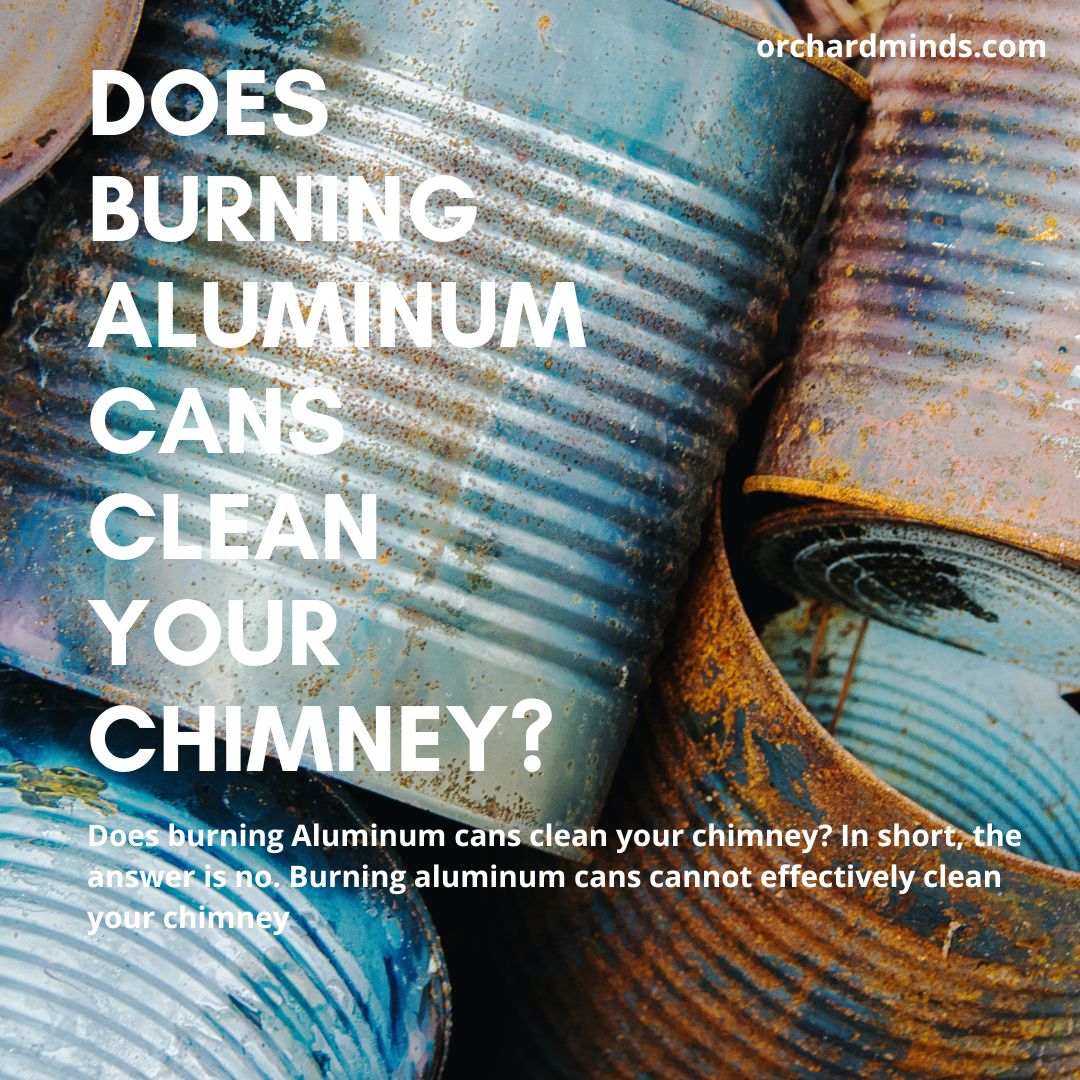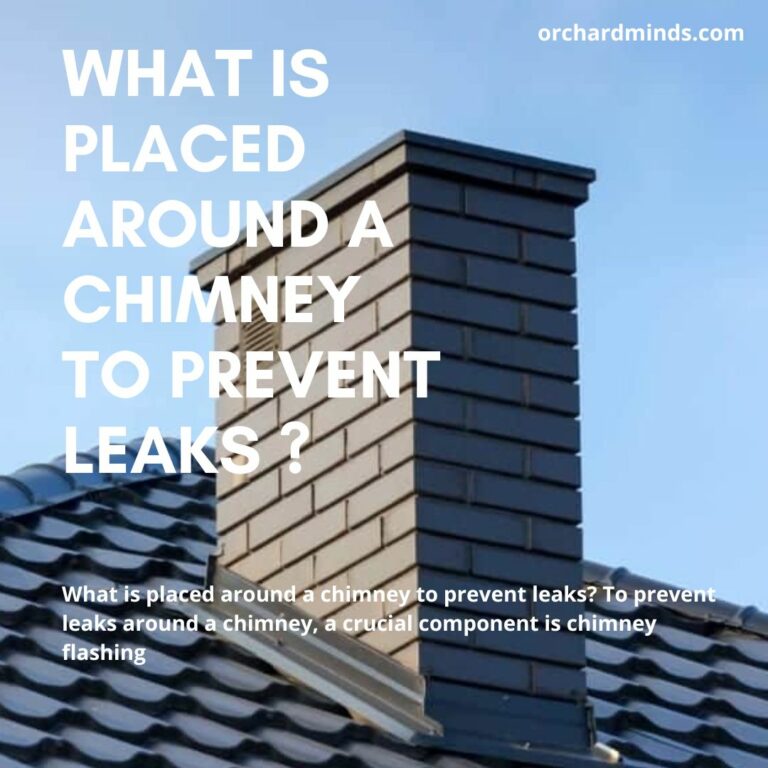Does burning Aluminum cans clean your chimney? In short, the answer is no. Burning aluminum cans cannot effectively clean your chimney. Chimney maintenance is essential to home ownership, ensuring both safety and efficient heating during the colder months. However, the notion of using aluminum cans as a DIY chimney cleaning solution has been circulating, leaving many homeowners curious about its effectiveness. In this article, we’ll provide a definitive answer to whether burning aluminum cans can clean your chimney, and we’ll delve into why this method is neither safe nor suitable for chimney maintenance.
Understanding the Chimney Cleaning Process
Before delving into the topic of burning aluminum cans, it’s essential to understand how chimney cleaning typically works. Professional chimney sweeps use specialized tools to remove creosote, soot, and debris from the chimney’s interior. This process ensures that your chimney remains safe and efficient, preventing fires and allowing for proper ventilation of smoke and gases.
The Myth of Burning Aluminum Cans
The idea of burning aluminum cans to clean a chimney is a myth that has been circulating for some time. Proponents of this method claim that when aluminum cans are burned inside a fire, they create a chemical reaction that effectively loosens and removes creosote and soot from the chimney walls. However, this notion is misleading and potentially dangerous.
Why Burning Aluminum Cans Doesn’t Work
1. Ineffectiveness:
- Lack of Abrasion: Aluminum cans are not designed or constructed to have abrasive properties. Effective chimney cleaning requires tools and materials that can physically dislodge and remove creosote and soot deposits from the chimney walls.
- Insufficient Heat: Burning aluminum cans does not generate the intense heat necessary to break down and remove the stubborn residues lining the chimney. These residues can be challenging and dense, requiring specialized equipment to remove them effectively.
2. Toxic Fumes:
- Harmful Emissions: Burning aluminum cans releases toxic fumes, including chemicals used in the manufacturing and printing the cans. Inhaling these fumes can harm your health, potentially leading to respiratory problems, irritation, and other health issues.
- Chimney Damage: The toxic residue from burning aluminum cans can adhere to the chimney’s interior surfaces, potentially causing corrosion and damage over time. This can result in the need for costly repairs or chimney replacement.
3. Fire Hazard:
- Ignition Risk: Attempting to clean your chimney by burning aluminum cans poses a significant fire hazard. The extreme heat generated during this process can easily ignite the accumulated creosote and soot deposits on the chimney walls, leading to a fire.
- Safety Concerns: Chimney fires are dangerous and can quickly spread to other parts of your home. They can also cause extensive damage to your chimney’s structure, compromising its integrity.
The Safe Way to Clean Your Chimney
1. Professional Chimney Inspection:
- Annual Assessment: Scheduling an annual chimney inspection with a certified sweep is the first defense against potential issues. These professionals are trained to evaluate the condition of your chimney, looking for creosote buildup, cracks, blockages, and any other safety concerns.
- Early Detection: Early detection of problems such as cracks or structural issues can prevent costly repairs. A professional inspection ensures your chimney is in good working condition and safe to use.
2. Regular Maintenance:
- Responsible Usage: When using your fireplace or wood-burning stove, it’s crucial to burn only seasoned hardwood. Seasoned wood burns cleaner and produces less creosote than green or unseasoned wood.
- Proper Ventilation: Ensure proper ventilation by fully opening the damper when starting a fire and closing it gradually as it burns down. This helps maintain an efficient burn and reduces creosote buildup.
3. Creosote Removal:
- Professional Service: If your chimney sweep detects creosote buildup during the inspection, it must be removed promptly. Creosote can ignite and cause a chimney fire, posing a severe safety risk. Professional chimney sweeps use specialized tools and techniques to safely remove creosote and ensure your chimney is free from obstructions.
4. Chimney Cap Installation:
- Debris Prevention: Installing a chimney cap is an effective way to keep debris, leaves, twigs, and animals out of your chimney. These obstructions can worsen creosote buildup and block proper ventilation.
- Rain Protection: A chimney cap also prevents rainwater from entering your chimney. Water can damage the interior of your chimney and lead to structural issues.
FAQS about Does burning Aluminum cans clean your chimney?
1. Why is chimney maintenance necessary?
Chimney maintenance is crucial to ensure the safe and efficient operation of your fireplace or wood-burning stove. It helps prevent chimney fires carbon monoxide leaks, and maintains proper ventilation.
2. How often should I have my chimney cleaned?
The frequency of chimney cleaning depends on usage and the type of fuel you burn. As a general guideline, it’s recommended to have an annual inspection and cleaning if necessary. Heavy use or burning softwood may require more frequent cleaning.
3. Can I clean my chimney myself?
While some homeowners attempt DIY chimney cleaning, hiring a professional chimney sweep is safer and more effective. They have the expertise, tools, and knowledge to perform a thorough and safe cleaning.
4. What is creosote, and why is it a concern?
Creosote is a highly flammable substance that forms when wood is burned. It can accumulate inside your chimney and pose a significant fire hazard. Regular chimney cleaning helps remove creosote buildup.
5. Can I burn aluminum cans to clean my chimney?
No, burning aluminum cans is not a safe or effective method for chimney cleaning. It can release toxic fumes, increase the risk of chimney fires, and potentially damage your chimney’s interior.




1 Comment